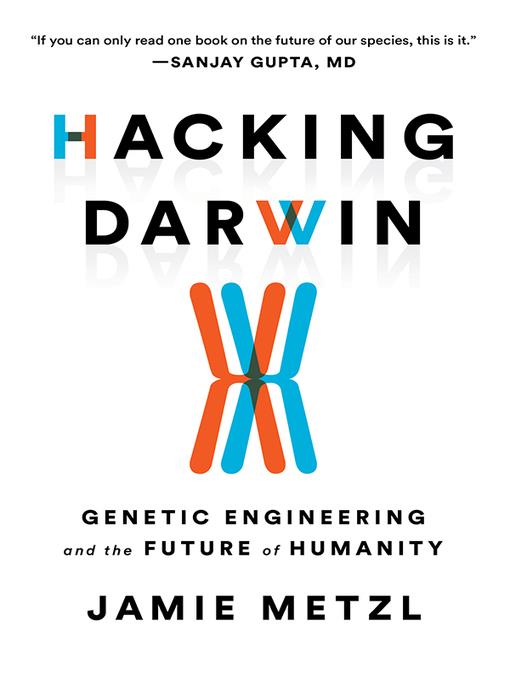
Hacking Darwin
Genetic Engineering and the Future of Humanity
کتاب های مرتبط
- اطلاعات
- نقد و بررسی
- دیدگاه کاربران
نقد و بررسی

February 11, 2019
A species-wide dialogue about what it is to “be human” must start as soon as possible, writes Mezl (Genesis Code), a member of the Council of Foreign Relations and Clinton administration staffer, in this urgent treatise on genetic engineering. Metzl provides the necessary background to his discussion: in 2004, four clinics in China helped couples genetically analyze their embryos and thus optimize gene disorder–free births, a process known as preimplantation genetic testing (PGT). By 2016, those clinics numbered 40, some operating “on a colossal scale” and establishing China as the leading country for carrying out this process. The next step, Metzl argues, is genetically altering embryos to “optimize” them further, such as by increasing intelligence or strength. While science-savvy readers are unlikely to find these details particularly revelatory, Metzl brings an unusual degree of urgency to his policy recommendations. To prevent “a never ending process of creating and rewriting the code of life” from getting out of hand, he recommends that humanity build a “global regulatory structure,” like that governing nuclear energy. Reflecting his background in think tanks and government, rather than in science or science writing, Metzl’s focus is squarely on the societal implications of his subject, not its technical nuts and bolts. The result is a highly readable compendium of next-gen advice for the implementation and management of next-gen science. Agent: Jill Marsal, Marsal Lyon Literary Agency.

February 1, 2019
Numerous books explain the genetic revolution now in progress; this one describes where it might lead, and it's a wild ride."Hacking" is the unauthorized intrusion into a computer system, usually to alter its software. Some prefer the term "genetic engineering" to describe the process of changing an organism's DNA to produce useful products or, more recently, correct defects. Futurist Metzl (Eternal Sonata, 2016, etc.), a senior fellow at the Atlantic Council who has also served in the State Department and the White House, maintains that this process will become so routine that most of us will not understand what's happening and those that do might disapprove. In short, we will be hacked. One technique does not involve manipulating DNA. In today's in vitro fertilization, doctors pick among multiple eggs, perhaps test for a few traits, usually absence of some defect, and implant a selection. Advances will enable a mother to produce huge numbers of eggs and doctors to test for countless traits--e.g., resistance to diseases, personality, even longevity--before implanting the best. The obvious next step is to remove defects or insert improved DNA into the genome. The new, Nobel-worthy CRISPR breakthrough makes this not only possible, but practical, and the first applications are emerging from the laboratory. Metzl's explanation of how CRISPR works is no more comprehensible than those of earlier authors, but its dazzling possibilities are obvious. In future decades, advanced IVF will increasingly compete with sex as the primary way we procreate. Metzl devotes plenty of space to the fierce ethical debate, but the reality is that, given the choice, few parents are likely to choose "natural" reproduction and bear a child guaranteed to be less intelligent, talented, and healthy than otherwise.A thoughtful, exciting, and mostly accessible account of how genetic manipulation will vastly improve our species. Miracles will happen, if not quite yet. Maybe in a few years....
COPYRIGHT(2019) Kirkus Reviews, ALL RIGHTS RESERVED.

























دیدگاه کاربران